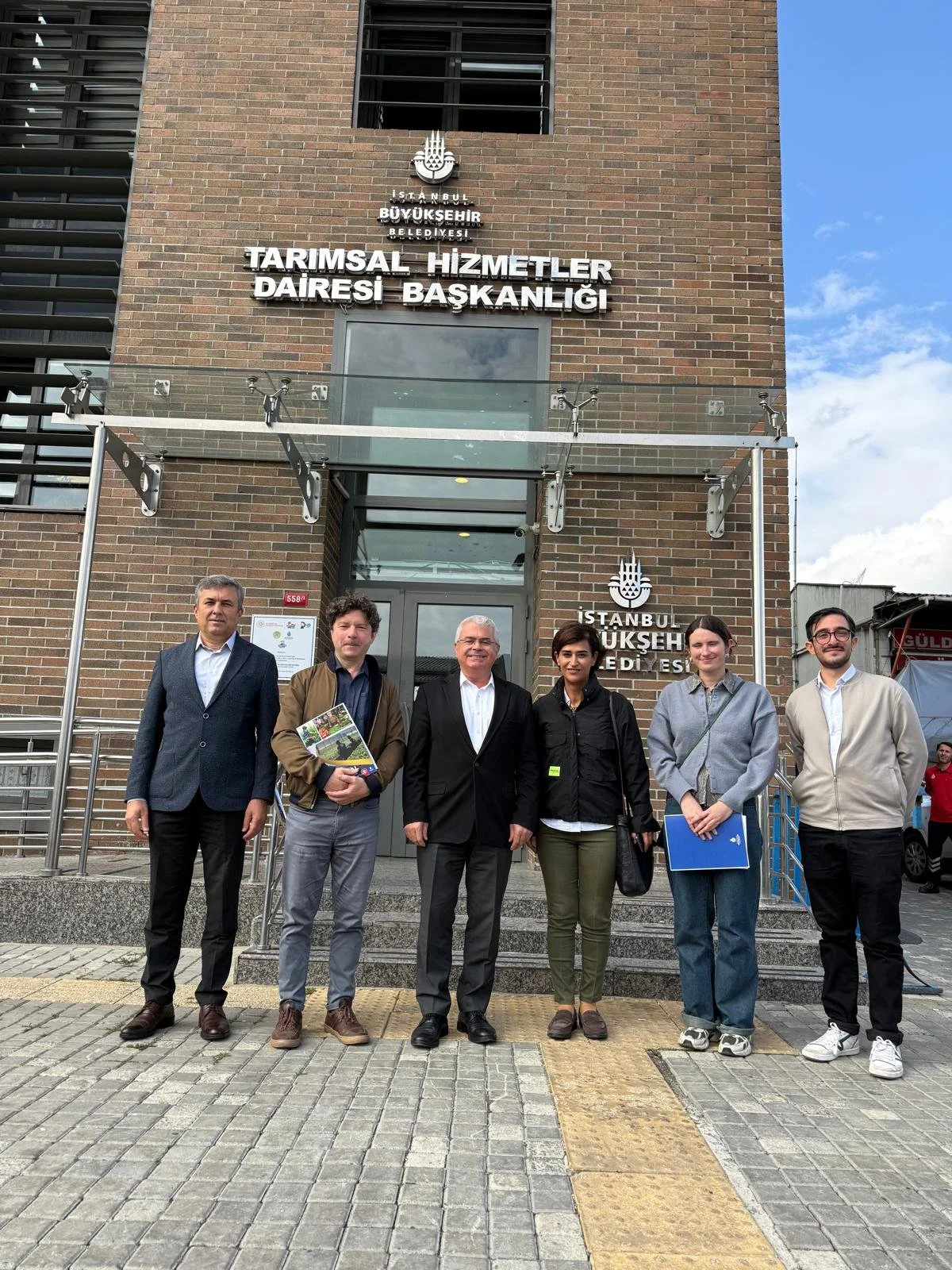Community Restaurants in Istanbul
Alex Colas and Laura Toffolo report on a recent visit to Istanbul’s Municipal Government
Zohran Mamdani’s spectacular victory in the New York City mayoral election has highlighted the power of cost-of-living policies in mobilising progressive electorates. Among Mamdani’s promised redistributive measures is a network of municipally-owned and managed supermarkets geared toward offering New Yorkers affordable food at wholesale prices. Meanwhile, thousands of miles away in Istanbul, another popular centre-left metropolitan mayor, Ekrem İmamoğlu, in 2022 launched a network of kent lokantasi or ‘people’s restaurants’ across the city. As part of a wider research project on just transitions in urban food systems seed-funded by Birkbeck College, we had the opportunity to learn more about this community restaurant scheme and how it might translate into similar projects here in the UK.
A Pilot Seeking a Larger Landing Space
The first thing to note is that it’s a pilot initiative aimed at showcasing possibilities and testing avenues for future roll-out and upscaling. With just under twenty venues across a city of 16 million, advocates of kent lokantasi in Istanbul are keenly aware these currently carry more symbolic value rather than any deep power to systematically address food inequalities across such a large and diverse metropolitan area. However, it is telling that since launching three years ago, similar people’s restaurants have opened in other major cities like the capital Ankara, Izmir or Gaziantep - including in municipalities controlled by the country’s ruling party.
A Municipal System
Another feature of the community restaurant scheme is that it’s integrated within the existing Istanbul municipality (IBB) catering operation, which feeds up to 80,000 IBB employees daily across workplace canteens and municipality-run eating spaces. This in turn is connected to a wider food-related infrastructure managed by the IBB, including seed banks, community food gardens, a wheat procurement project, an energy producing organic waste biomethanization facility, and two wholesale fruit and vegetable markets. In line with the London, Paris, New York City and Milan food plans and policies, Istanbul’s food strategy aims to coordinate and mobilise the municipality’s agrifood assets and resources toward a more sustainable and equitable metropolitan food system.
As Esra Kaya’s report on the country’s network of city restaurants for the Turkish Association of Social Democratic Municipalities indicates,
‘these were designed not merely as a meal-provision service but as public spaces symbolizing the party’s social-policy understanding - places that show local governments stand with the people and convey the message that no one is alone […] Its core purpose is to support the right to a fair and dignified life by facilitating access - especially for low-income residents facing rising living costs and economic hardship - to affordable, healthy, and hygienic meals’.
What struck us from conversations with our Istanbul colleagues is how distinctive the needs are in that metropolitan area. With food hyperinflation, the erosion of traditional urban-rural kinship support networks, and a significant public university student population seeking higher education in the big city, that youthful demographic appears to be a major client base for the kent lokantasi.
Learnings for the UK
Despite the particularities of the Istanbul experience, there are many resonances for UK towns and cities. The Food and Work Network has from the outset identified a longer tradition of publicly-funded community and workplace restaurants, canteens, and kitchens in this country, which is an important piece of the food security puzzle. There are clearly many things to be learned from the Istanbul and wider Turkish experience with people’s restaurants, including thorny issues of scale, location, funding and managament.
With the upcoming Right to Food UK Commission dedicating one of its nine planned hearings to ‘Serving Good Food’, there is a real opportunity to make further inroads into campaigns for community restaurants and kitchens up and down the country. As Food Bank Britain keeps expanding, it’s essential to trial more just, dignified and equitable ways of addressing the country’s food crisis, and the Istanbul kent lokantasi offer one tried-and-tested model.

